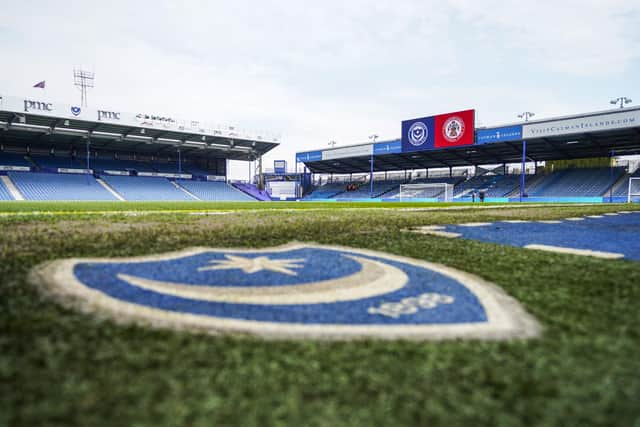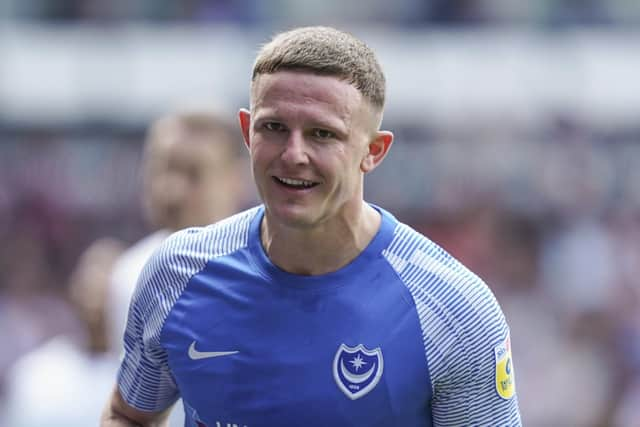Portsmouth sporting director on creating a development group - and the best pathway for Blues starlets
and live on Freeview channel 276
However, the sporting director is convinced loaning youngsters into the non-league game is a more productive Blues route at this moment in time.
In recent times, Pompey have struggled to establish a pathway from the Academy into the first-team, despite Michael Eisner’s Portsmouth Guildhall pledge seven years ago.
Advertisement
Hide AdAdvertisement
Hide AdThe creation of a development group has often been mooted as a potential solution, extending youth-team graduates’ Fratton Park stay and allowing them more time within an under-21 section to flourish.
It’s a suggestion Hughes doesn’t discount as he strives to modify Pompey’s structure since his October 2022 arrival.
Yet he believes Blues starlets will currently benefit more from loan spells with non-league clubs rather than playing at under-21 level.
Hughes told The News: ‘I don’t think it’s unrealistic for a League One club to have a development group. The wider conversation is whether it’s the right strategy to go down and what it gives you that loans don’t.
Advertisement
Hide AdAdvertisement
Hide Ad‘Me, John (Mousinho), Phil (Boardman) and the coaching staff watch a lot of under-21 football and sometimes it doesn’t replicate the intensity of the Football League. There’s a danger of it just becoming a slow tempo game that doesn’t prepare your players.


‘Whereas non-league football is probably more exaggerated on the physical side and less technical, but that’s the bit you can’t teach in the Academy.
‘It’s what we feel is the best strategy for our players – and that might differ from player to player. There might not be a set formula for everyone.
‘Someone like Ryley Towler played Category Two football and his progress came through loan spells in the National League and League Two, then into our team. There's different pathways for different types of players.
Advertisement
Hide AdAdvertisement
Hide Ad‘I would absolutely consider a development group. If we felt it was the right thing to do, I’m sure it’s a really sensible conversation to have, but it’s just wider question marks over extra coaches, finding new games programmes, the facilities, recruiting extra players.


‘For sure there are merits, but part of the wider strategy is how quickly that development will happen and then turning them into first-team players – which is essentially what we’re all judged upon.’
Colby Bishop resurrected his career in non-league football following his Notts County release in 2016.
He represented Worcester, Boston and Leamington – and last season was Pompey’s 24-goal leading scorer.
Advertisement
Hide AdAdvertisement
Hide AdHughes added: ‘There is a really strong value in non-league and even in our group now there are players who’ve had to fight up through that pathway and done really well.
‘Colby Bishop, Paddy Lane, Ryley all played non-league football and progressed through it. It teaches them accelerated physicality and has almost amplified them.
‘Look at Colby now, he has a raw physical element to him where he can play with back to goal and pin bigger defenders because he’s learnt how to use his body while playing non-league football.
‘I’m a big believer in it, I don't think there’s a substitute for competitive football, it’s really, really important.
‘Football has a natural way of filtering things and if people do well at certain levels they can go to the next level and the level above that.’
